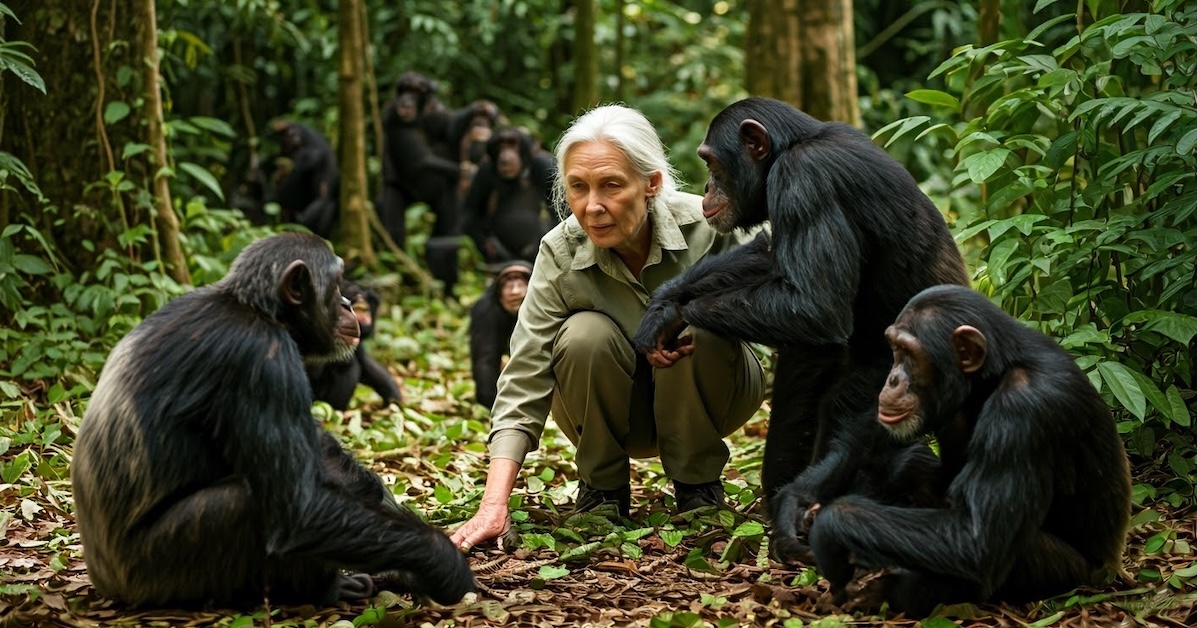 A tribute by Claire Robinson of GMWatch
A tribute by Claire Robinson of GMWatch
We were sad to hear of the death, at the age of 91, of the primatologist Dame Jane Goodall. She was a pioneer researcher into animal sentience, especially as it related to her beloved chimpanzees, which she observed in their natural habitat. She outraged the scientific and academic community by giving the chimps names and commenting on their personalities. In 1960 she was the first to document their use of tools – at the time, a skill that was frequently claimed to be unique to humans.
Her work triggered a growing awareness of the feelings, emotions, and rights of animals, raising difficult questions for the rest of society about how they were treated, both inside and outside of farming.
It’s no doubt difficult for younger people to understand just how controversial Jane’s work with chimps was, because it ended up being so profoundly influential that the entire climate of knowledge around animals has now changed. But back in the 1960s and 70s, she was often portrayed as an over-emotional, anti-scientific woman who committed the mortal sin of "anthropomorphising" animals – imposing on them human qualities that so-called "experts" asserted that they did not have.
In her understanding of animals, she was streets ahead of her time, but even in the face of hostility, she never backed down from the truth as she knew it. She dedicated her life to fighting for conservation.
GMOs and pesticides
Jane was also concerned about the effects of GM foods and pesticides on health and the environment. I was fortunate enough to meet her and communicate with her about the animal feeding studies showing adverse effects from GM crops and foods. She immediately understood the risks. As a result she kindly gave us an endorsement for our book GMO Myths and Truths.
She also enthusiastically reviewed, and wrote the Foreword for, Steven Druker's book on the corruption endemic in the GM food venture, Altered Genes, Twisted Truth.
Only a few days before her death she was in Mexico, where she praised the country's brilliant resistance to Bayer-Monsanto and the planting of GM corn.
She was an outspoken critic of pesticides, and said, "Someday we shall look back on this dark era of agriculture and shake our heads. How could we have ever believed that it was a good idea to grow our food with poisons?"
Above all, Jane was as kind and humble as she was courageous: always willing to stand up for what was right but at the same time happy to help anyone she felt could benefit from her time and attention.
More about Jane:
The Guardian
NBC News on Youtube
Image: Shutterstock (licensed purchase)










